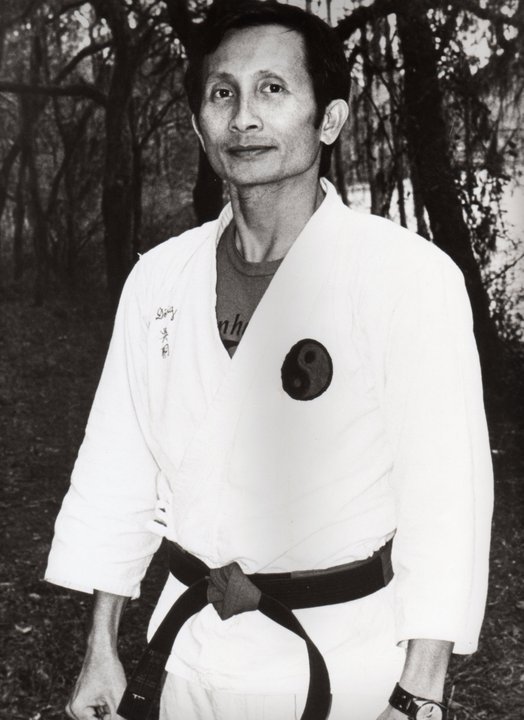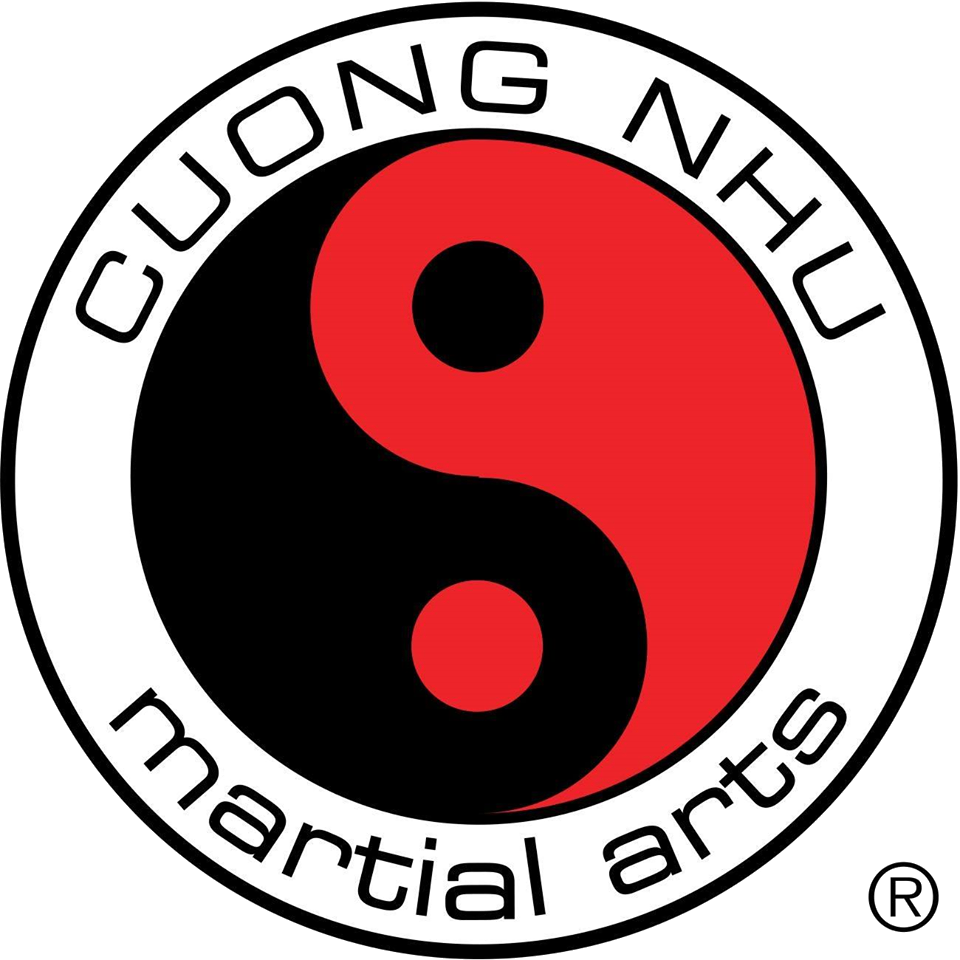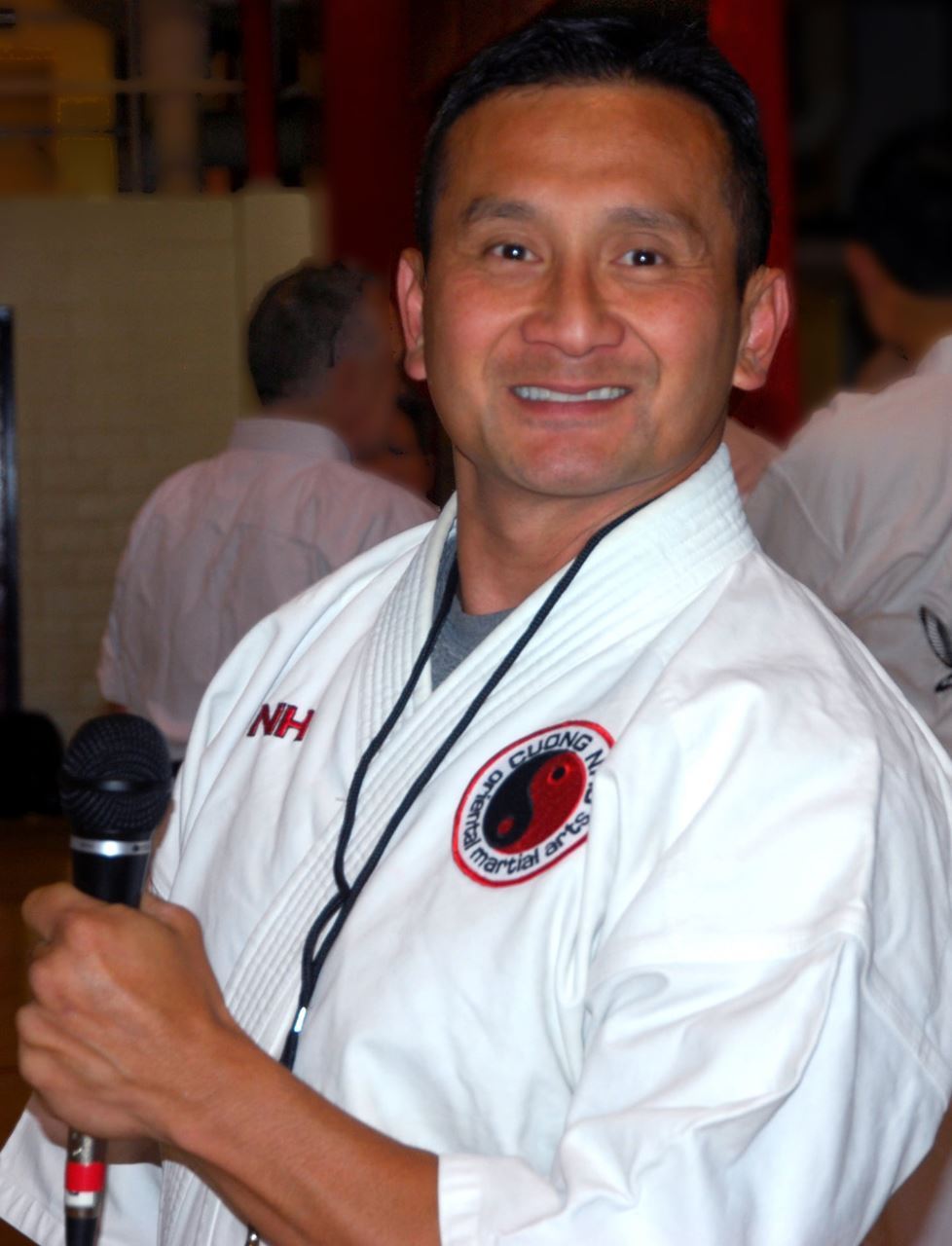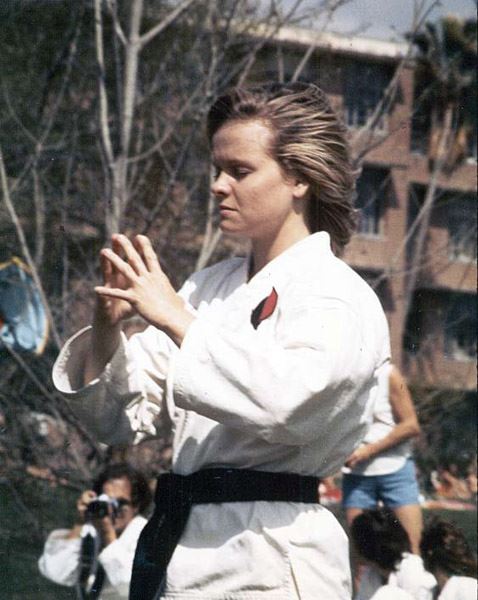In Memoriam
Remembering those Masters we have lost: Grandmaster Quynh, O'Sensei Dong, Master Mary, and Master Lap
| grandmaster Quynh NgoFebruary 25, 1965 - September 1, 2021 Head of Style 1998-2021 Quynh Ngo was born in Hue, Vietnam, in 1965, the same year his father founded the new martial art style of Cuong Nhu. People would often joke that he and Cuong Nhu were twins. It was the height of the Vietnam war, and he endured harrowing times as a young child. At age three, during the Tet Offensive, he and his family hid in a bunker as gunshots and bombs exploded all around. The family came through unharmed, and miraculously, his younger sister Thu was born safely in that bunker, joining Quynh and his two brothers. At age seven, he contracted malaria and survived nine days in the hospital without benefit of modern medicine. When he was only twelve, his family, targeted politically and living under house arrest, adopted the motto “Freedom or Death,” and risked their lives escaping Vietnam by boat. Had an Indonesian freighter not spotted their tiny fishing vessel in the vast South China Sea and taken them aboard, they would surely have perished. Looking back on those early experiences, Grandmaster Quynh would declare, “Three strikes and I’m still in!”—reflecting the positivity and optimism that characterized him in life and as a leader. He was devoted to sharing this perspective with his students and anyone who would listen: As long as you’re alive, the negative stuff doesn’t matter—not other people’s perceptions, nor bullies, nor setbacks at school or work. Use your life to focus on your own goals and continual self-improvement. The family spent months in a refugee camp in Indonesia. Training with his father in Cuong Nhu became an important means of maintaining mental and physical fitness. When the family was welcomed to Gainesville, Florida, and his father resumed teaching Cuong Nhu on and off the University of Florida campus, Quynh and his siblings continued training. As young immigrants just learning English, he and his brothers became targets for local bullies, and had their share of skirmishes. These would typically end quickly when the bullies realized they were picking on highly skilled fighters. The young Quynh Ngo developed into an outstanding tournament competitor in both kata and sparring, developing a reputation as being unbeatable at sparring. The legend goes that he could announce where he was going to hit you, and there would be nothing you could do to stop him. He also began developing his skills as an instructor, teaching in the local dojos as he earned his degree in Building Construction. He later founded Osprey Dojo (now Black Talon Dojo) on the campus of the University of North Florida, and in 2006 opened the Cuong Nhu World Headquarters dojo in Jacksonville, Florida. World Headquarters continues to thrive in the Mandarin neighborhood of Jacksonville. In the late 1990s, illness forced his father to retire from leadership of Cuong Nhu. It was decided by the panel of Cuong Nhu’s senior ranks that the position of Head of Style would be offered to Quynh if he should be willing to take it. Although he was still in his thirties, had a young family, and was in the midst of building his own construction business, Grandmaster Quynh was honored to accept the responsibility of carrying on his father’s vision. From that year forward, he devoted himself to all three facets of his life, building a highly successful business, leading a martial art style with over 75 schools, and raising three very accomplished children, all of whom now hold dan rank in Cuong Nhu and have served as head instructor at the dojo their grandfather originally founded at the University of Florida. In his sudden and tragic passing at age 56, Grandmaster Quynh leaves behind his loving wife Jessica and stepson Demarco; his three children, Christina, Rebecca, and Alexander; and their mother Chrissi, with whom he remained close friends. He also leaves behind the entire Cuong Nhu family of thousands who were touched by his endlessly giving spirit. Share your own memories of Grandmaster Quynh in the Student Forums. |
 | O'Sensei Ngo DONGOctober 4, 1937 - May 15, 2000Founder of Cuong Nhu
Growing up in Hanoi, Ngo Dong was immersed in martial arts from an early age. As a child, he learned Vovinam from his brother Ngo Quoc Phong, one of the top five students of Vovinam's founder, and studied Wing Chun and Aikido with his other brothers. Although their father, Ngo Khanh Thuc, was then attorney general of northern Vietnam, the Ngo brothers tested their fighting skills on the street by engaging the hustlers and professional street fighters inhabiting the alleys and back streets of Hanoi. After moving south to Hue, Vietnam in 1956, Grand Master Dong began Shotokan Karate training under a former Japanese captain, Choji Suzuki. After years of fanatical training, he earned his fourth degree black belt. He also studied judo and earned a black belt in that system. In 1965, feeling his training had been physically rigorous but lacking on the mental and spiritual side, he founded Cuong Nhu, in which he would blend the principles and techniques of many arts, while infusing the training with his personal philosophy of self-improvement, community service, and love and respect for others. Grandmaster Dong married Chau Thanh Nu Ton in 1963 and had four children. In the tradition of early martial arts masters, he was a family man, civic leader, scientist and author. He earned two degrees, in Biology and Chemistry, in Vietnam and served as professor of Biology at the University of Hue from 1961 to 1971. After the devastating 1968 Tet offensive, he organized a civil defense organization, The People's Self-Defense Forces of Hue, to help protect the public from the random violence spawned by the war. His organization engaged some 25,000 people in a program of karate, games and friendly competition to rebuild morale and spirit. He was devoted to the development of Cuong Nhu and the personal growth of thousands of students. He also published books on subjects ranging from martial arts philosophy and technique, to flower arrangement. In 1971, he traveled to the United States to pursue a Ph.D. in Entomology at the University of Florida. In September 1971, during his post-graduate studies, he opened the first Cuong Nhu Karate Club in the United States. Having earned his doctorate in three years, he returned to Vietnam in 1974, where he was appointed president of Da Nang College. An outspoken opponent of communism, O'Sensei Dong was placed under house arrest by the communist government of Vietnam in 1975. He and his family later took the tremendous risk of escaping by boat to Indonesia. They returned to the United States in November 1977, on Homecoming Day at the University of Florida. During the 1980s, Grandmaster Dong developed into an accomplished runner. In 1986 he completed his first two marathons, which he ran on consecutive weekends. His first ultra-marathon was the 100-mile Western States run in Squaw Valley, California. He ultimately completed 23 marathons, eight 50-mile ultra-marathons and fourteen 100-mile ultra-marathons. Grandmaster Dong retired from the University of Florida on August 18, 1994. He was awarded with dual proclamations from the City of Gainesville and Alachua County, Florida, declaring August 14, 1994 as Dr. Ngo Dong Day.
On May 15, 2000, O Sensei Ngo Dong passed peacefully on from this life. Three sons, a daughter and seven grandchildren survive him. His many Cuong Nhu students are all deeply touched by his spirit and honored to have shared in his life. All those who knew Dr. Ngo appreciated his love of nature, the outdoors, and enjoying the simple pleasures of life such as watering a rose bush or feeding koi goldfish. To commemorate his life, the family commissioned an oriental plant garden built and maintained in his honor at Kanapaha Nature Center in Gainesville, Florida. This garden contains plants and flowers loved by Dr. Ngo as well as a plaque dedicating it in his memory. Kanapaha has over 50,000 visitors each year, and is a popular place for weddings and picnics. This memorial serves as a place for family and friends to visit and remember Dr. Ngo. Learn more about O'Sensei Dong on our History page. |



